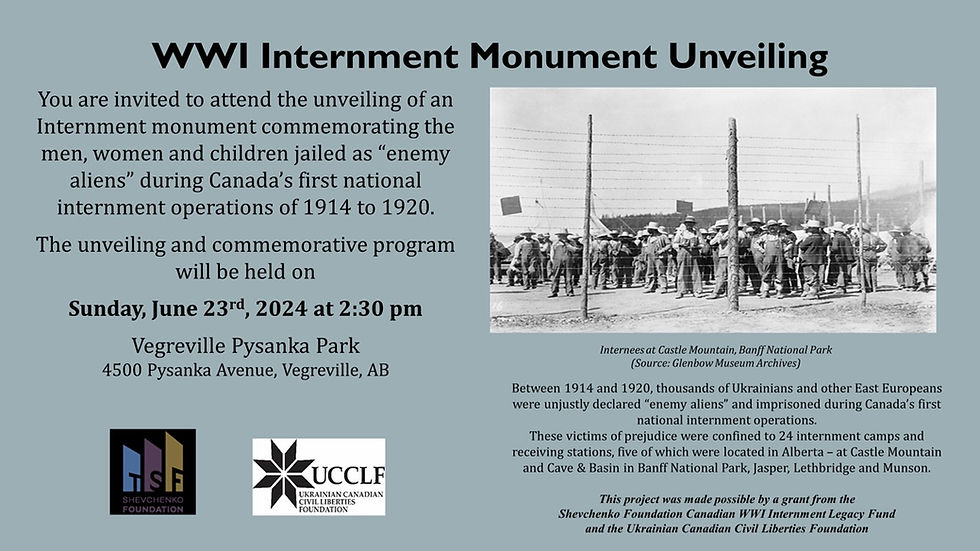UCCLA disputes UCC position on Canadian Museum for Human Rights
- Dec 14, 2012
- 2 min read
Updated: Jun 5, 2018
Responding to a recent media release by the Ukrainian Canadian Congress (UCC), Roman Zakaluzny, chair of the Ukrainian Canadian Civil Liberties Association, a non-partisan and independent organization dedicated to the articulation and defence of the organized Canadian Ukrainian community's interests, said: "We have consistently stated that we want all galleries in the taxpayer-funded Canadian Museum for Human Rights to be thematic, inclusive, and comparative in content.
"Most Canadians oppose elevating the suffering of any community above all others with a privileged or permanent space in this national museum. We do not agree with the UCC's request for a separate Holodomor gallery, any more than we endorse having an entire hall set aside for the Holocaust. Instead a "genocide gallery" would be more educationally useful, allowing for a treatment of how that concept came into being, when and where it has been applied, and why, complemented by rotating exhibits providing visitors with a more complete understanding of the many different examples of genocide that have befouled human history.
While we share the UCC's wish to see Canada's first national internment operations covered at the CMHR, an inclusive 'War Measures Act' gallery would be more useful, covering not only what happened to Ukrainians and other Europeans in the First World War but the similar internal security measures taken against Japanese, German, Italian and Jewish Canadians in the Second World War, and some Quebecois in 1970. A hall dedicated to explaining why citizens must remain vigilant in defence of civil liberties and human rights, particularly in times of domestic and international tension, would have genuine pedagogical value.
"It is imperative that the CMHR's board of directors and curators revise their existing plans if they wish to avoid turning this already over-budget, behind-schedule, and very contentious project into an even-more divisive and fiscally untenable one, especially given the straightened financial circumstances facing Canadians."




Comments